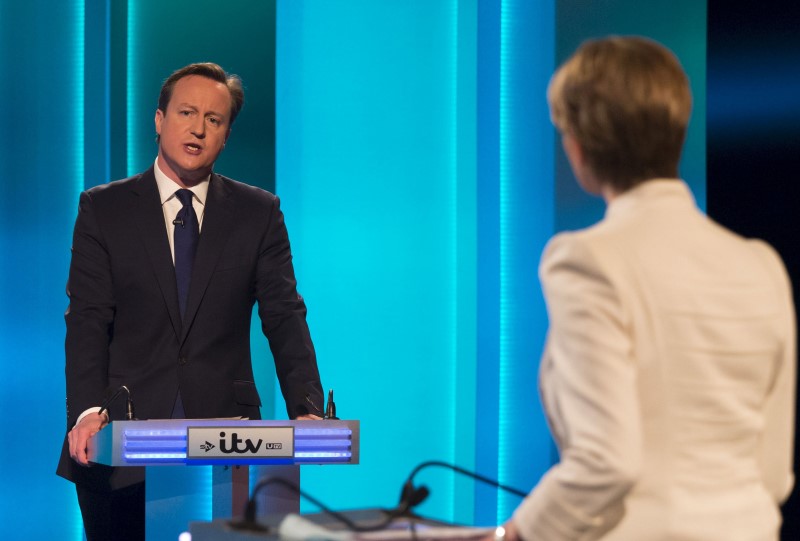SALFORD, England (Reuters) - Prime Minister David Cameron on Thursday accused his political rivals of wanting to raise taxes and borrow more after coming under pressure from six party leaders over his plans to tackle Britain's 1.5 trillion pound debt mountain.
In the first and only full TV debate of Britain's election campaign before a May 7 ballot, opposition Labour Party leader Ed Miliband and other party leaders said Cameron's plan to cut government spending went too far.
Cameron, the leader of the Conservative Party, defended his economic record since forming a coalition government with the Liberal Democrats after a May 2010 election, saying Labour would increase taxes and cripple the economy if it won power.
"The alternative to that plan is actually putting up taxes and I don't want to do that," Cameron said.
"If we go back to the tax, the waste, the spending and the debt, all the things that got us into a mess in the first place. We wouldn't help working people we'd hurt working people. That's what Labour did last time and we mustn't let it happen again."
Labour's Miliband and Scottish nationalist leader Nicola Sturgeon accused Cameron of making unfair cuts that had thrown people into poverty and of failing to deal with tax avoidance.
"David, you just said you were tackling tax avoidance. Let's look at the reality on this. You haven't acted on the tax havens, you haven't acted on the hedge funds," Miliband said.
"You have to ask yourself at home, why won't David Cameron act on those hedge funds? They fund his party, he won't act. We need leadership that will stand up and act to tackle tax havens."
Britain's public sector net debt is forecast to peak at 80.4 percent of Gross Domestic Product in 2014-15, according to the latest budget statement.

Nigel Farage, leader of the anti-EU UK Independence Party, said Britain should cut foreign aid and leave the European Union.